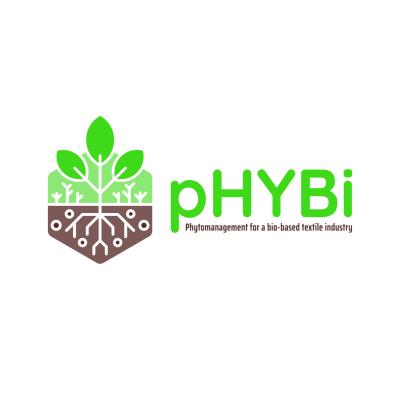
pHYBi
PHYtomanagement as a sustainable feedstock source of lignocellulosic-based high-value BIo-based products for textile applications

PHYtomanagement as a sustainable feedstock source of lignocellulosic-based high-value BIo-based products for textile applications
In Europe, the potential for cultivating industrial crops as bioeconomy feedstock lies in degraded, polluted, and saline soils, rendering them unsuitable for food crop production. Amidst the challenges confronting Europe's bioeconomy, with approximately 80% of land dedicated to settlements, agriculture, and infrastructure, the pHYBi project directly tackles the critical issue of sourcing sustainable feedstock without competing with food crop cultivation.
The purpose of pHYBi is two-fold: first, to combine soil phytoremediation with lignocellulosic biomass valorisation in a circular economy model for high-value-added applications in the textile industry; and second, to establish a replicable framework for sustainable industrial crop production on degraded lands.
The project proposes specific case studies involving the cultivation of woody and herbaceous crops in polluted and salt-affected soils. Additionally, pHYBi will develop and validate various strategies that involve fungi and bacteria inocula and organic and inorganic (nano) amendments to improve crop health and growth, as well as to ensure that phytomanagement practices result in improved soil conditions and ecosystem restoration.
Furthermore, pHYBi emphasises social innovation, engaging stakeholders across the value chain to foster acceptance and adoption of the bio-based products. The project aims not only to address immediate challenges, but also to pave the way for broader adoption of sustainable practices in Europe's bioeconomy.
The pHYBi project aims to link the production of high-yield biomass in degraded and polluted soils, following phytomanagement practices, with a complete biomass extraction and valorisation process for lignocellulosic fractions (cellulose, hemicellulose and lignin) through a sustainable process. The main objectives include:
The pHYBi’s results will directly contribute to: